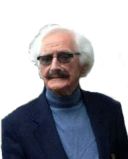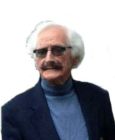Freudian Psychology
Herman Hesse and The Hermetic Circle
Freud and Jung had much in common with hermetic principles
Posted September 24, 2012
In the 1960’s, when I was teaching at the University of Connecticut, a great many students were reading Siddhartha, Steppenwolf, Narcissus und Goldmund, and anything else by Hesse that they could lay their hands on.
Herman Hesse, novelist and poet, was born in Germany in 1877, became a Swiss citizen in 1921 and was awarded the Nobel Prize for Literature in 1946. He died in 1962. I have always considered him to be one of the three great exemplars of the Romantic Movement in German literature, the two others being Goethe and Thomas Mann: writers believing in a philosophy of life where imagination, feelings, and intuitively-realized moral and philosophical-spiritual sensibilities, were responsible for the individuality that characterizes each one of us.
Looking back over 35 years of teaching and writing I can say that the decade of the 60’s was the most stimulating and rewarding period to be in the profession. There was a desire ‘to know’ in the air: a curiosity concerning the ‘how’ and the ‘why’ of things that pervaded both the sciences and the humanities. Indeed, students and faculty moved voluntarily and easily between the two. Even in large lecture classes, it was not difficult to provoke discussion concerning both the facts of human history and the varying psychological characteristics of the men and women responsible for that history – from individuals possessed of humane and creative sensibilities, to others completely devoid of such characteristics and motivations.
There was a great curiosity abroad in the 1960’s – a genuine ‘meeting of minds’ between philosophers, psychologists, historians, scientists, musicians, artists – that enthused student and teacher alike, brought them together in a common educational cause, both in and out of the lecture hall.
The reason why Hesse became so popular was because the themes throughout his books provided some very satisfying answers concerning the complex psychological structure that accounts for the mystery and complexity of ‘human being’ in general – and that could be applied to the understanding of one’s own individuality in particular. His characters (all adrift on the sea of life) were challenged by the intensity of their own inner introspective reveries: dreams and reflections, hopes of self-fulfillment, of realizing purpose and meaning in their lives. These self-generated mental ‘realities’ that were challenging the belief of the time-space-physical reality of the outside world – as revealed by the five senses – provide the only credible reasons to explain human existence. But all of Hesse’s characters were pursuing a quest: that of seeking to comprehend an ‘inner’ and essential component of themselves, some essence of their being that pushed them to transcend ‘outer’ material and temporal realities. They were embarked – as Hesse put it – on ‘the quest for the One within’.
This highly personal, introspective journey, was nourished by the ethos – the characteristic spirit – of the 60’s – supporting the view that not only was such a quest natural and necessary, but that every form of knowledge contributed to its fulfillment. Education was seen as an important way to reach this goal.
The word hermetic, as commonly used today, signifies something securely ‘sealed’ and of exclusive – even secret – content. But very early on, from about the second or third century AD, it specifically connoted writings of a mystical, occult nature - speculations concerning the validity and vitality of a ‘spirit-force’ driving the imagination and underpinning day-to-day consciousness. It is not difficult to see how the development of 20th Century psychology and psychiatry – particularly as initiated and practiced by Freud and Jung – had much in common with the philosophical principles of early hermetic doctrine. For both these pioneers in the exploration of the human psyche (Jung in particular) emphasized the nature of the ‘double life’ we lead as humans: that while the ego self looks outward and has us functioning in the material, time-space world, the alter ego self is indwelling and has us (to use a somewhat hackneyed phrase) ‘soul-searching’(there is more of this in What the Hell Are the Neurons Up To?).
Consequently, if one describes someone as being a member of the ‘Hermetic Circle’ it would signify that they are – as is said nowadays - ‘in the know,’ meaning that they came across as wise and compassionate human beings; a union of intellect and spirit informing their way of life.
I remember reading (in one obituary of Herman Hesse) that after his wife had died and he was living alone, save for the presence of his housekeeper – an old family retainer – he would not go to the front door himself to welcome a visitor. Instead, he left this duty to his housekeeper. Her first job was to peer through a small glass lens fitted into the door and scrutinize the visitor before returning to Hesse. ‘Well, do they…?’ he would ask. If she replied ‘yes’, Hesse would tell her to admit the visitor;
If ‘no’, then she must neither address or admit the caller.
Hesse’s question, if less abbreviated, would have been, ‘Well, do they belong to the Hermetic Circle?’
Obviously, he saw no point in spending time with someone who was not ‘in the know’ and did not appear to possess the gravitas that came with living the interior life in as much as the ‘aura’ possessed by such an individual could not be discerned.
And he left his housekeeper to make the decision!


